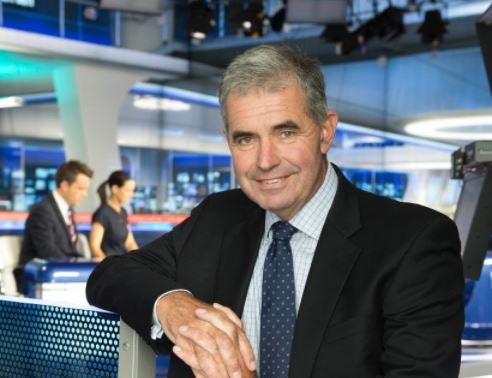
The executive editor of Sky Sports News, Andy Cairns, said the phrase “Sky sources” used in the breaking news ticker sometimes refers to information from just one source rather than at least two sources which might have been best practice in the past.
Speaking on Friday at a conference on ethics and sports journalism, Cairns said the growing phenomenon of “unnamed sources” was not ideal, but was in part the result of the heightened competition to be the first with the news.
“We’ve had to respond. I think for a while, most news organisations followed the two sources rule for any story. With the pace of news and increased competition, that’s not workable now for every story.”
Cairns conceded that it happened “too often probably”, but said there was still careful evaluation of a source based on asking the right questions and an extensive contact base.
He also said there was now a disturbing middle ground occupied by news and gossip websites, or Twitter accounts with large followings, where different rules applied.
Sky Sports News had set up a special team to break original news and verify quickly stories on social media.
“The challenge comes when a rumour gathers momentum on social media. We can’t ignore it so we are honest with our viewers… that we are checking to verify and that we will update as soon as we can.”
Cairns – who was speaking at the Institute of Communication Ethics (ICE) Annual Conference entitled: Sports Journalism: ethical vacuum or ethical minefield? – added that the increasingly tight control exercised by press officers and clubs, who were often running their own media channels, was also part of the problem.
“Sometimes the only interview access with a key figure is from a club channel which causes us a problem. Newspapers and websites can run the quotes; we have to run pictures with a credit.”
However, he conceded that in the past sports reporters were probably too close to the players and officials.
“Even though I’ve lived through this change, I’m not sure what came first. Whether the closer journalistic scrutiny led to the more protective environment, or whether the more protective environment and tougher access meant sports reporters now had a greater distance… that allowed them to take a step back, take a more critical view and probe more deeply into the broader issues.”
Also speaking at the conference was lecturer in sports journalism at the University of Gloucestershire, Jonathan Cable, who questioned whether sports news outlets were using social media for engagement with their audience or simply as a broadcast channel.
Together with former journalist and Senior Lecturer in Data Journalism, Glyn Mottershead of Cardiff University, he carried out a study of 1.2 million tweets made by 13 major news outlets from the BBC to the Daily Mirror between 2008 and 2017.
They found that the top 20 hashtags were all football-related, and a third of the top 15 were related to Manchester United. This showed that was a hierarchy in sports news coverage: football dominated and then elite football dominated.
Cable said: “Even within the Premier league it’s not representing all fans, and it’s also doing a disservice to all the other clubs outside the league who have their followers. The media outlets should be able to take more risks, which would also make their coverage more democratic.
“Social media is supposed to be interactive and social, and very often this is not happening,” said Cable. Over 300,000 tweets had no retweets and only 195,000 had more than 25 retweets. More than a third of the 1.2 million tweets had no ‘likes’ at all.
However, he also noted that the five most popular retweets were all from positive stories. “It shows the difference between news and sport is that sport focuses much more on the positive. Positive emotion goes well with engagement, so this is something the media outlets should be able to take advantage of.”
Email pged@pressgazette.co.uk to point out mistakes, provide story tips or send in a letter for publication on our "Letters Page" blog
